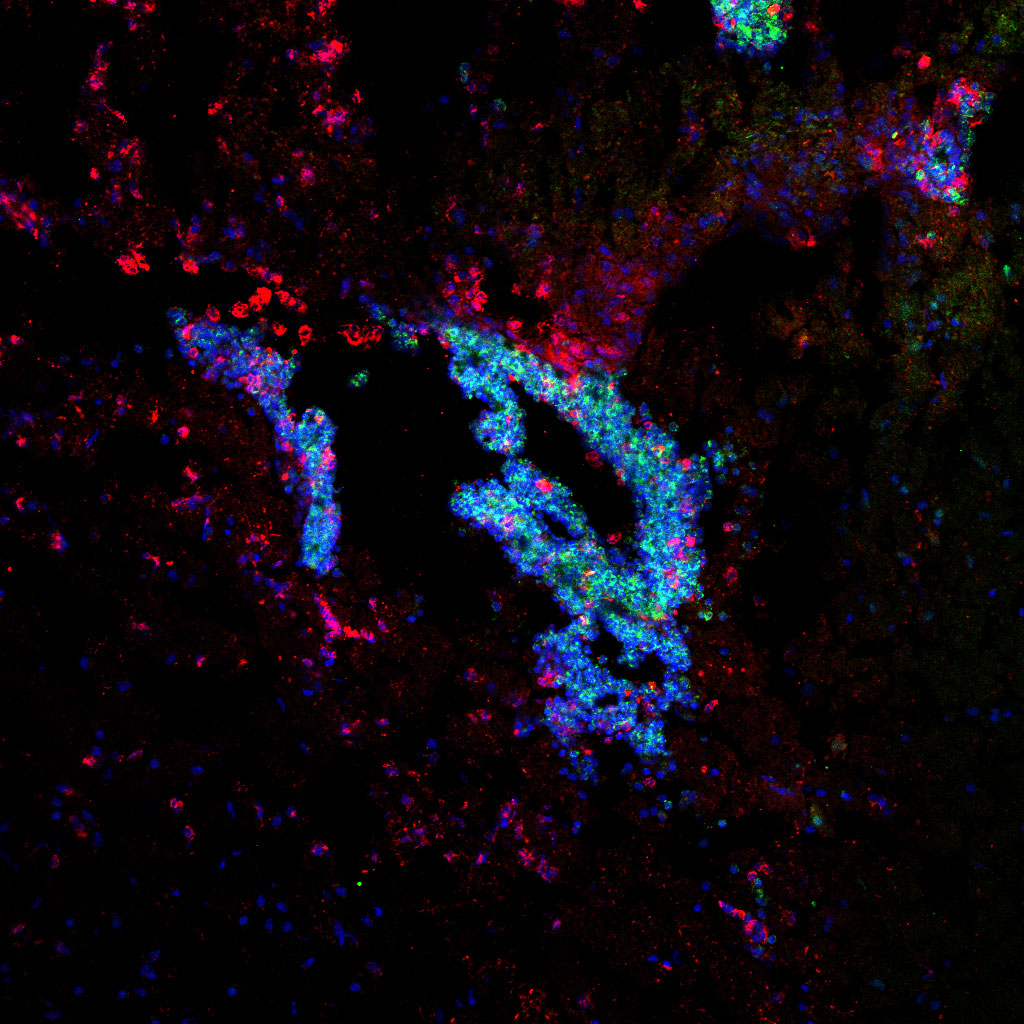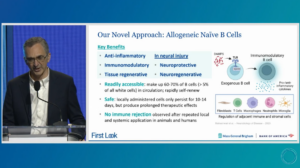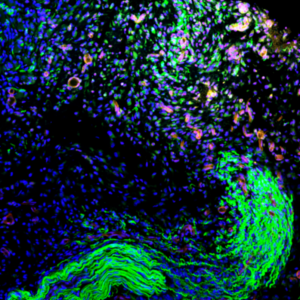In a recent publication, Dr. Ruxandra Sîrbulescu and her team at VIC investigate the mechanisms that underlie the neuroprotective effects of a novel cell-based treatment that uses B cells to reduce the detrimental impact of inflammation after brain injury. The authors map the local cellular responses in the injured tissue along a 2-month timeline, and describe some of the key ways by which the applied therapeutic B cells communicate with and regulate the responses of inflammatory cells in their vicinity. The study indicates that B cells applied directly into the injured tissue regulate the actions of other immune cells, including monocytes and macrophages that infiltrate from the blood, resulting in less damage to the nervous tissue. The presence of therapeutically administered B cells also reduced the long-term activation of microglia, resident immune cells of the brain. Together, these findings support B cells as powerful regulatory cells with potential for further development as an effective cell therapy for treating traumatic brain injuries in the future.
Recent Publication in the Journal of Inflammation from Dr. Ruxandra Sîrbulescu





